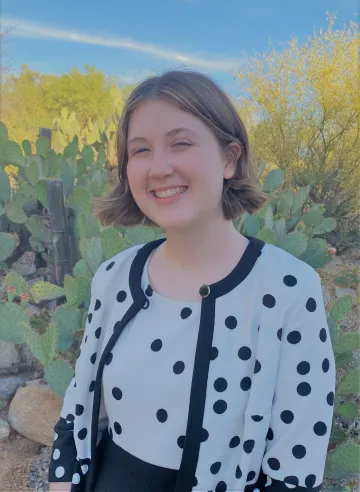Portia's Quest Project - Training Neural Classifiers to Recognize Hate Speech Masked by Homoglyphs

Portia is a first year Franke Honors Wildcat studying Pre-computer Science.
Tell us about your Quest Project:
Online hate speech is prevalent, even though it is banned on major platforms, such as Twitter, Facebook, and YouTube. To avoid detection by current auto-moderation applications, progenitors of hate speech often replace letters in offensive words with homoglyphs—Unicode characters that are visually similar, such as the Latin “a” (U+0061) and the Cyrillic “а” (U+0430). My Quest project involved developing a novel scraping method to collect more than 90,000 tweets with offensive language containing homoglyphs and using this data to train seven neural classifiers to recognize hate speech masked by homoglyphs.
I was inspired to pursue this project because I wanted to stop hate raids on Twitch, a live streaming platform that I frequent. In 2021-2022, coordinated bot attacks spammed the chats of minority and LGBTQ+ Twitch live streamers with targeted slurs. There was a sense of hopelessness in the Twitch community: “…these bots use weird Unicode symbols and random letters to get around detection/filters…there’s not much one can do proactively” (Gappy V, Twitch live streamer, Tweet posted on August 21, 2021). The Twitch hate raids upset me deeply, and I wanted to stop them.
Two aspects of this project were especially challenging. First, harvesting data designed to evade detection required enormous persistence. Second, I scraped the tweets for this project during Fall 2022 when Twitter was in turmoil after a bumpy acquisition by Elon Musk and the subsequent layoff of more than 60% of employees. Every day I worried that Twitter would collapse or that all academic licenses would be revoked before I completed data collection.

